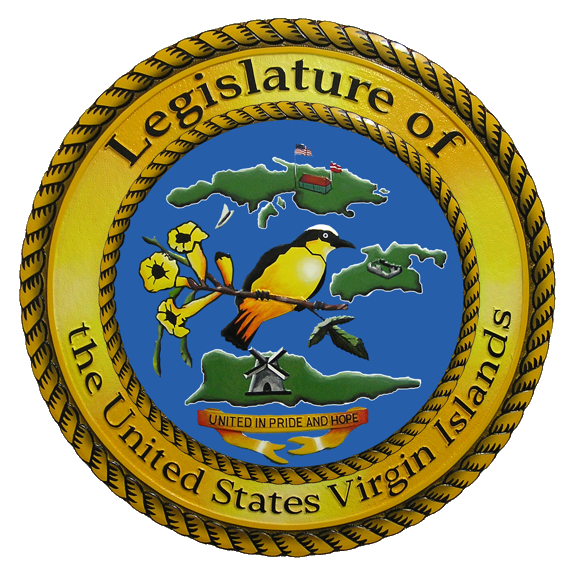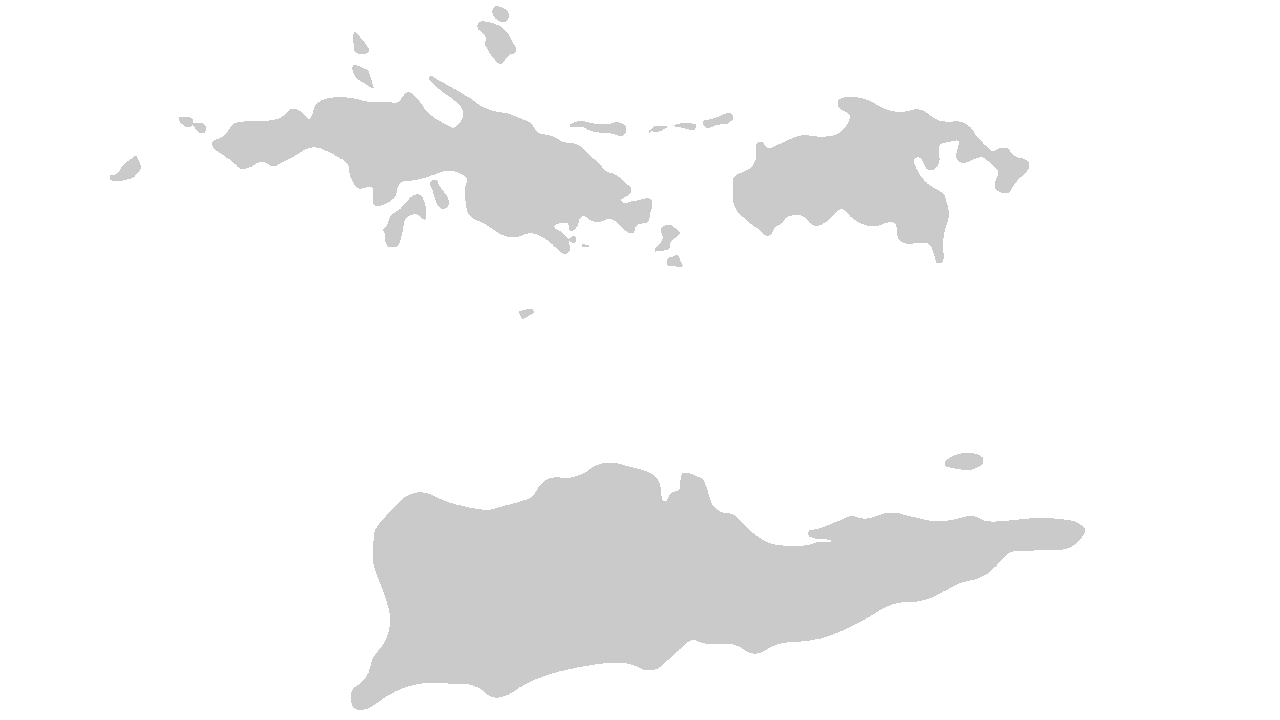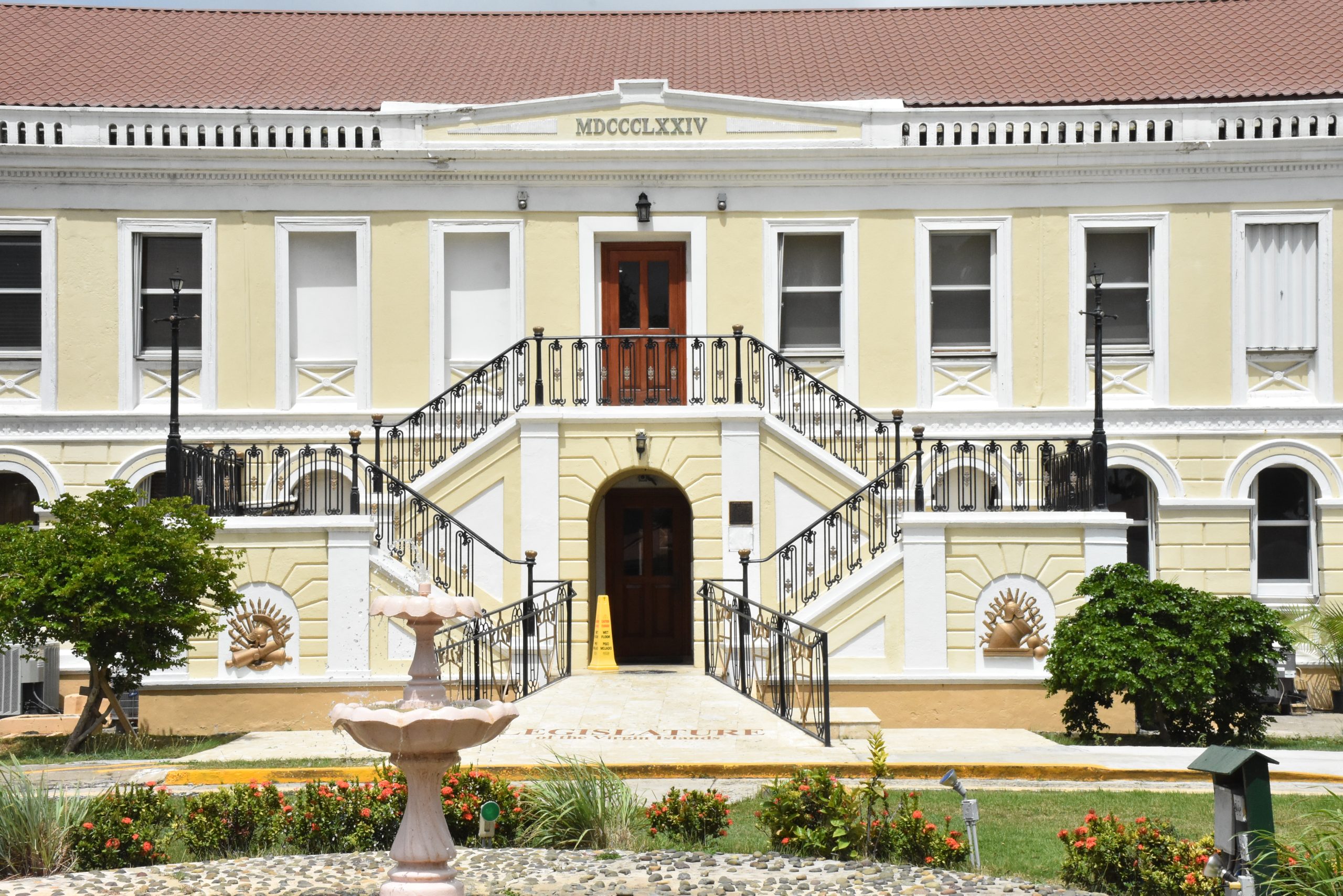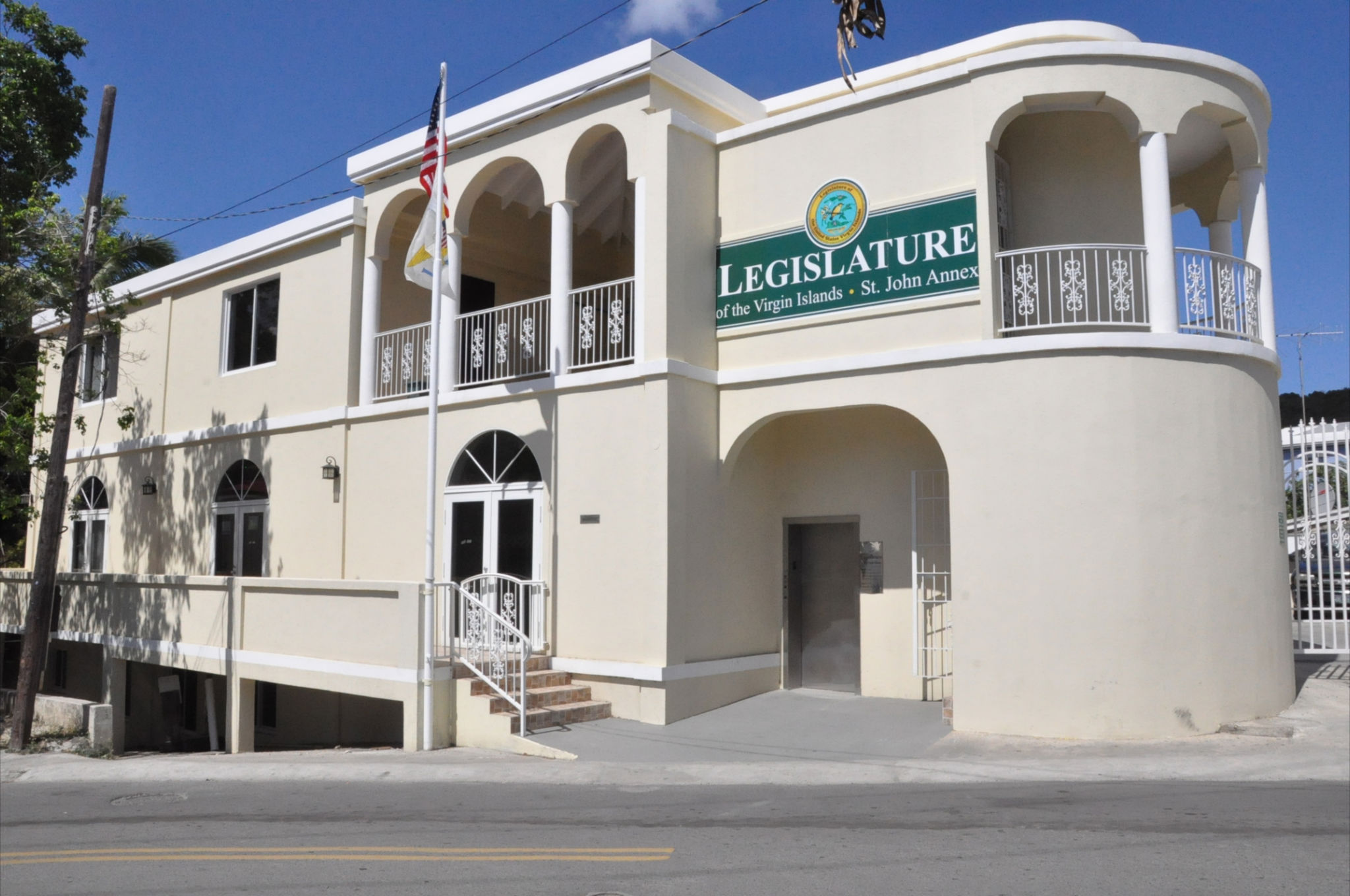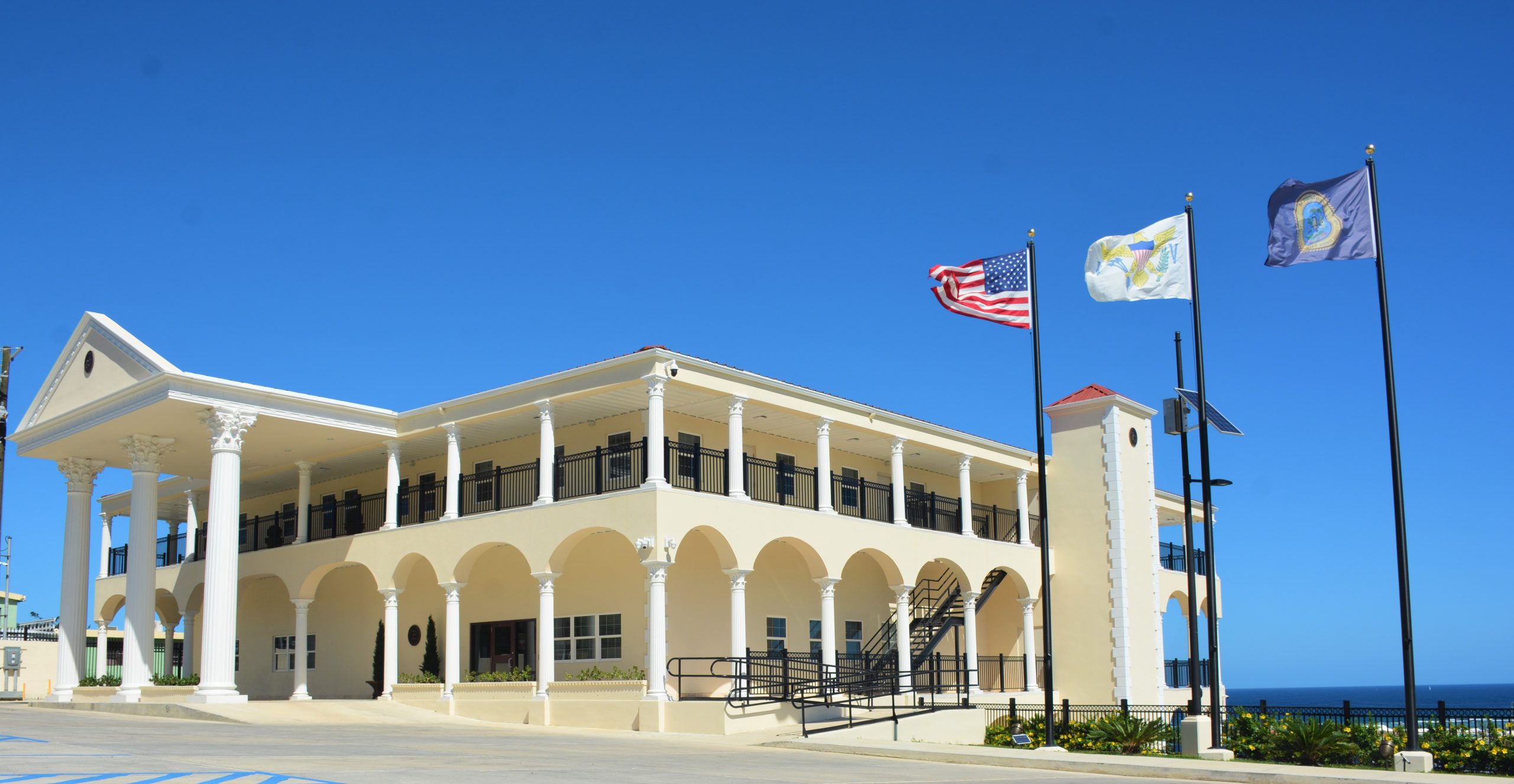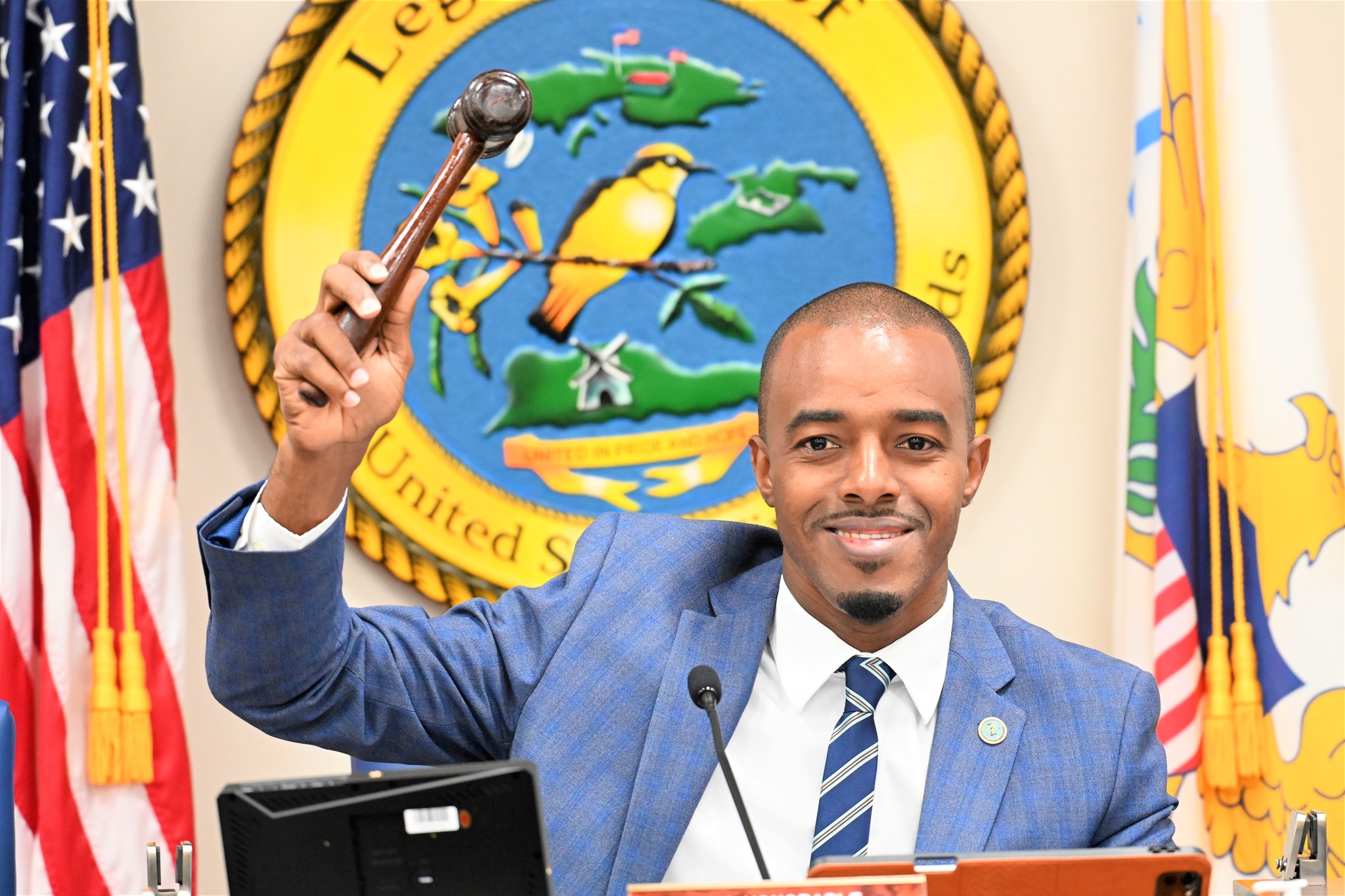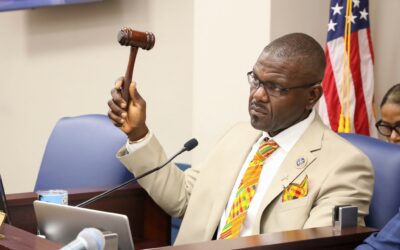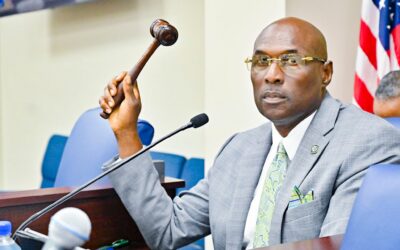ST. CROIX – Members of the Committee on Economic Development and Agriculture, led by
Senator Javan E. James, Sr. convened in a meeting at the Frits E. Lawaetz Legislative Conference
Room.
In Block 1, the Committee received an update on the overall status of the Virgin Islands
Department of Agriculture.
Positive T.A. Nelson, the commissioner of the Virgin Islands Department of Agriculture delivered
testimony. According to Nelson, the Department of Agriculture continues to make headway in
rebuilding food availability in the territory. The Commissioner further indicated that employee
morale at the department has improved and an attitude towards excellence is being built via
divisional training, professional development, and improved communication from management.
Additionally, Nelson said new equipment and tools have been purchased to help with efficiency
while executing tasks.
The Territorial Agricultural Plan, which is Act 1804, hopes to increase agricultural productivity
locally to make food security and sovereignty a reality. The department’s role is to oversee, support
and solidify the progression and implementation of the plan. Nelson said food production is
increasing in the territory but not at the capacity he wanted it to be. The department hopes to secure
funding and support building personal capacity to pursue the mandates of the Territorial Plan. The
Department of Agriculture currently has fifty-seven positions filled of which thirty-one are
classified and twenty-six are exempt. There are sixteen vacant positions, ten of which are classified
and six are exempt. There are forty-one total classified positions, and thirty-two exempt positions.
There are forty-seven positions in St. Croix, eight in St. Thomas, and two in St. John.
The Property Division at the Department of Agriculture has four leases currently being processed
by the Department of Property and Procurement. Two leases have already been signed and are
awaiting approval from the legislature. Those leases are for Good Morning Market, and Veggie 4
Life. Two other leases for Michael Durant and Efrain Bermudez are being processed and the
required supporting documentation has been submitted to move forward with the leases. The
division has encouraged more farmers to complete lease packages, which includes Updated
Business License, Business Plan, Liability Insurance, Letter of Good Standing at the Occupant’s
Bank, and the Virgin Islands Department Agriculture initial lease package, which would allow
more farmers to occupy farmlands for a term of 20 years. There are 126 farmers in the St. Croix
district and fifty in the St. Thomas-St. John district. There are 1370 total acres of farmland in the
St. Croix district, and 110 in the St. Thomas-St. John district. There are 470.2 total acres of vacant
agricultural plots in the territory.
Nelson spoke of the need for additional staffing in the Department. Long-standing employees of
the department are seeking to retire, and additional staff, such as butchers, would be needed to
learn related skills to ensure there is no gap in services. Additionally, Nelson also mentioned the
effect of drought impacts on the territory. The US Drought Monitor (USDM) is a map that is
updated every Thursday to show the location and intensity of drought throughout the country. The
USDM uses a five-category system. These categories include Abnormally dry or (D0), which is a
precursor to drought and not considered drought, Moderate (D1), Severe (D2), Extreme (D3), and
Exceptional (D4). As of January 24, 2023, St. Thomas and St. Croix were “abnormally dry†while
St. John was considered to have no drought or dryness.
Senator Javan James Sr. asked Commissioner Nelson about his involvement with the Territorial
Agricultural plan, to which Nelson said he was only involved via a seat on the EDA and was not
directly asked to participate. Senator Donna Frett-Gregory also voiced concern mentioning that
the plan was recently approved in the 34th Legislature of the Virgin Islands.
“We cannot continue to blow smoke up at the people of the Virgin Islands, it is wrong, it is very
disheartening. This department leads the agricultural movement in the territory.†Senator Angel
L. Bolques, Jr. voiced additional concern over the state of agriculture in the territory, stating that
“if agriculture goes wrong, we don’t have a chance to make anything go right.â€Â
In Block 2, the Committee received an update on the overall status of the Virgin Islands Territorial
Agricultural plan.
Dr. David Hall, SJD, the President of the University of the Virgin Islands delivered testimony.
According to Hall, the Agriculture Plan Task Force has not been meeting since the submission of
the plan, and various meetings related to it. However, a new advisory committee will be created.
Hall voiced being grateful for the support that the Legislature had provided in passing Act 8404 to
create the Agriculture Plan, and funding critical parts of it through Act 8700. The President of the
University of the Virgin Islands is a member of the new advisory committee, by enactment, but
the group will decide on a chairperson and other key positions. Act 8700 provides funding to the
University of the Virgin Islands for certain aspects of the plan. Hall stated that certain discussions
have already begun with the Dean of the School of Business, Dr. Kendra Harris about the
integration of the Agriculture Business Center into the existing Small Business Development
Center.
The Director of Sponsored Programs at the University, Mindy Solivan stands ready to create a
robust and professional grant writing and grant submission team so that the territory can pursue
federal funds that would support parts of the plan, especially water and irrigation needs. Funding
will be provided to the university to ensure that the Local food and farm advisory committee
functions and fulfills its oversight mission for the plan. The university will also receive funding to
ensure that the Local Food Fund is established by the Advisory Committee, which would ensure
that private citizens can support agriculture projects and initiatives through charitable
contributions. Hall stated that the collection of annual agricultural data, working in conjunction
with the Advisory Committee can create comprehensive data plan Hall voiced promise in the plan,
stating that he believed that it created a new pathway for the increase of agriculture productivity
in the Virgin Islands.
Sommer Sibilly-Brown, the founder and executive director of Virgin Islands Good Food Coalition,
Inc. delivered testimony. The Virgin Islands Good Food Coalition is a nonprofit organization
dedicated to strengthening and building a thriving, equitable, and just food system in the US Virgin
Islands. The Coalition seeks to advance a food system that prioritizes health equity, economic and
environmental justice, and the principles of circular economics. Similar to the territory’s
agriculture plan, its work focuses on food security, sovereignty, sustainability, stewardship, and
regeneration. The coalition has touched over three hundred actors in the system to include farmers,
ranchers, restaurants, grocers, wholesalers, retailers, culture bearers, educators, youth, and
multisector institutions. Following Hurricanes Irma and Maria, the coalition worked with the St.
Croix Foundation, Federal Emergency Management Community Planning Division, and Iowa
State University to complete a comprehensive food system assessment and a disaster preparedness
checklist.
Per Sibilly-Brown’s testimony, we need to ensure that we are attending to our labor needs,
workforce development and supply chains issues as we build out and implement the plan. The food
system in the US Virgin Islands has been impacted by adverse events, such as Hurricanes Irma
and Maria, the COVID-19 Pandemic, the oil refinery restart issues, drought, Tropical Storm Fiona,
supply chain issues and inflation. Combined with a further issue of a smaller workforce and issues
with accessing relief and other resources, it is incredibly important to identify what can
immediately be done to support the food system’s famers and consumers. The rising cost of eggs
was given as an example of the impact on households. Ninety-seven percent of food is imported
in the US Virgin Islands, along with 97% of the inputs to grow the food. Immediate and rapid
responses are needed to assist the system.
Sibilly-Brown stated that a comprehensive regulatory component for the territory’s farming
industry was needed. She asked the body to take decisive action on the review of the work done
by the agricultural plan taskforce on the repeal, amendment, and funding of existing laws to ensure
that the plan is adequately supported and that the laws are properly implemented. Sibilly-Brown
mentioned that the success of the plan would come down to skill, ability, and buy-in, stating that
a diverse, community member body would be needed and not a group of political appointees. She
added that increasing capacity throughout all sectors; civic, public, and private, is a way to allow
the proper distribution of resources.
Senator James said he looks forward to the companion legislation for the advisory committee so
the territorial agricultural plan funding can be established pursuant to Act 8700 and utilized.
Senators present at today’s committee hearing included Javan E. James, Sr, Angel L. Bolques, Jr.,
Marvin A. Blyden, Diane T. Capehart, Dwane M. Degraff, Novelle E. Francis, Jr., Alma Francis
Heyliger, Donna A. Frett-Gregory, Ray Fonseca, Franklin D. Johnson, and Carla J. Joseph.
####
